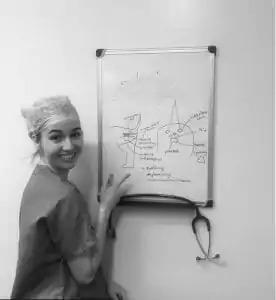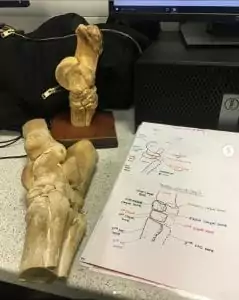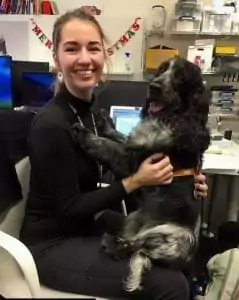A guest article by Melody Winterhalter, also known on Instagram as “Melody The Vet”. She will share some of her study tips for an easier time at the vet school.
Exams. The word brings dread to most students around the world. The laborious process of studying is exhausting and if you’re reading this, you’ve probably tried a multitude of different studying techniques and haven’t quite found what works for you. I’m here to give you some advice and tips on studying and try to make the whole process a bit less painful, and a bit more enjoyable. Of course, not all these tips will work for everyone, but it’s always worth a try!
-
Use mnemonics!

Granulomatous disease
Osteolytic disease
Spurious (e.g. lab error)
Hyperparathyroidism
Drug-related
Addison’s
Renal failure
Nutritional
Idiopathic
Tumors
There are plenty of veterinary mnemonics out there, and making up your own is even easier to remember I find!
-
Studying little and often

-
Flashcards!
These are honestly a godsend. With all the little facts you need to know in vet school (“how do you test for IMHA?”, “what treatment protocol should be used for T cell lymphoma?”, and so much more), it’s good to constantly quiz yourself on these so they stick in your brain. Make these as you go, and quiz yourself with maybe 10-20 flashcards every week, making sure you know them by the end of the week. It’ll be much more beneficial in the long run as opposed to cramming them all the month before exams!
-
Mind maps
Sometimes, the information you get in a seminar or practical class can be overwhelming. I like to put this all into a mindmap, which helps me categorize it on paper and in my brain. I’ve put an example below of one I’ve made in the past. I use the app “SimpleMind” but there are plenty of other mind map apps out there.
-
Acceptance

Let me know if these study tips work for you and if you have any other techniques that you use! And good luck with all future exams and your career as a veterinarian!
Follow Melody on INSTAGRAM.
Check out more Vet Student Stories on our blog.
